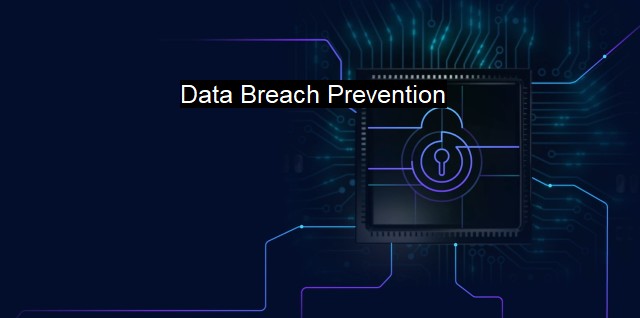What is Data Breach Prevention?
The Importance of Data Breach Prevention Techniques: Enhancing Your Cybersecurity Infrastructure Beyond Antivirus Solutions
"Data breach prevention" is an integral component of cybersecurity strategy that refers to proactive measures and strategies implemented to prevent unauthorized access, use, disclosure, disruption, modification, infringement, or destruction of information. These strategies primarily focus on protecting a company's data and information from external harmful entities such as hackers, but also internal threats brought about by careless employees or other authorized users. The increasing sophistication of cyber threats has made it imperative for businesses and organizations to prioritize data breach prevention in their overall security blueprint.Data breach prevention is vital owing to the delicacy of data handled by organizations, which often includes sensitive information like personal user details, client lists, financial reports, proprietary company information, and so on. A data breach can result in devastating consequences for businesses, including financial losses, reputational damage, legal consequences, and loss of customer trust.
A range of strategies can be implemented for data breach prevention. One of these involves applications like antivirus programs which serve as first-line defense against malicious entities. Antivirus applications primarily work by scanning data files and system directories for harmful software, deleting or quarantining them to prevent further harm.
More sophisticated programs can even identify threats based on behavior patterns, widely considered an effective method of counteracting previously unknown threats. antivirus applications aren’t always enough on their own to prevent a data breach —not all of them can fully secure data points when they are being frequently accessed and transferred.
That's where specialized cybersecurity tools come into play. Certain software identifies unauthorized attempts at accessing data and blocks these attempts in real time, so potential breach situations are stopped even before they happen. Intrusion prevention systems (IPS), as they are often called, are an excellent addition to the data breach prevention strategy for businesses keen to keep attackers at bay.
Data breach prevention also has a lot to do with data encryption. Encryption involves the conversion of data into code form to prevent unauthorized access. In the event an attacker gets their hands on encrypted data, the encrypted state of the data will make the content useless and unreadable.
It's also critical to engage in proactive data regulation and control practices. For instance, organizations can deploy data loss prevention (DLP) technology that helps identify and prevent data breaches by creating controls on end-user activities, such as enforcing rules for handling sensitive data and monitoring users' activities.
Another important element under the umbrella of data breach prevention is multiple-factor authentication. This requires users to present two or more identification factors to gain access to data.
Lastly, user education and training are vitally important. Many data breaches occur due to error or ignorance on the part of the user. It is crucial, therefore, that everyone within an organization is aware of the risks posed by data breaches and how they can potentially contribute to one.
By implementing a strong data breach prevention strategy, organizations can not only protect their own assets but also the privacy of their client base, which in today's digital age is invaluable. It is, therefore, prudent for every organization, not just the ones in technology or related field, to take data breach prevention seriously. After all, the security of data ensures the integrity of the entire system and lets businesses maintain their relationships with clients in the long run.

Data Breach Prevention FAQs
What is a data breach and why is it important to prevent it?
A data breach is a security incident in which sensitive, confidential, or protected information is accessed or disclosed without authorization. It is important to prevent data breaches because they can lead to significant financial losses, reputational damage, and legal liabilities for businesses and individuals.What are some common cybersecurity threats that can cause a data breach?
Some common cybersecurity threats that can cause a data breach include phishing attacks, malware infections, social engineering scams, insecure passwords, unpatched software vulnerabilities, and insider threats.What are some best practices for data breach prevention in the workplace?
Some best practices for data breach prevention in the workplace include implementing strong access controls and password policies, regularly patching and updating software systems, providing cybersecurity training and awareness to employees, limiting access to sensitive data, and developing an incident response plan.How can antivirus software help prevent a data breach?
Antivirus software can help prevent a data breach by detecting and blocking malware, viruses, and other cyber threats before they can infect a system or device. It can also provide real-time protection against new and emerging threats, as well as offer features such as email filtering, web browsing protection, and firewall configuration. However, it is important to note that antivirus software alone cannot provide complete protection against all types of cyber threats, and it should be used in combination with other cybersecurity measures for best results.| | A | | | B | | | C | | | D | | | E | | | F | | | G | | | H | | | I | | | J | | | K | | | L | | | M | |
| | N | | | O | | | P | | | Q | | | R | | | S | | | T | | | U | | | V | | | W | | | X | | | Y | | | Z | |
| | 1 | | | 2 | | | 3 | | | 4 | | | 7 | | | 8 | | |||||||